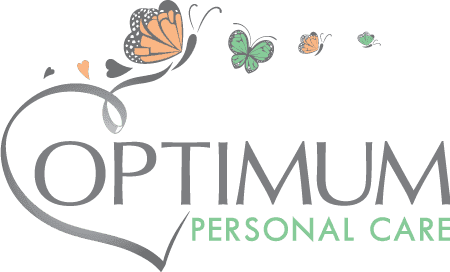Assisted living facilities are becoming increasingly popular as a living option for seniors who require some level of assistance with daily living activities, such as medication management. For caregivers who are responsible for managing the medication needs of seniors in assisted living, it can be a daunting task to ensure that medications are administered safely and effectively. In this article, we will discuss some tips for caregivers to effectively manage medications in assisted living facilities.
1. Keep An Up-To-Date Medication List
Keeping an up-to-date medication list is essential for effective medication management in assisted living facilities. This list should include all prescription medications, over-the-counter medications, vitamins, supplements, and herbal remedies that the senior is taking. The list should also include the dosage and frequency of each medication, as well as any special instructions, such as whether a medication should be taken with food or at a certain time of day.
Having an accurate medication list helps caregivers to ensure that the senior is receiving the correct medications at the right times, and can help to prevent medication errors and adverse drug reactions. It can also be helpful in communicating with healthcare providers, who can use the list to make informed decisions about the senior’s medication regimen. By keeping an up-to-date medication list, caregivers can help to ensure that seniors in assisted living facilities receive safe and effective medication management.
2. Understand Medication Interactions
Understanding medication interactions is crucial for caregivers who are responsible for managing medications in assisted living facilities. Medication interactions occur when two or more medications interact with each other in a way that affects their effectiveness or causes harmful side effects. Seniors who take multiple medications are at an increased risk of experiencing medication interactions.
Caregivers should take the time to research each medication that the senior is taking, including how it works, its side effects, and any potential interactions with other medications. They should also consult with healthcare providers, who can provide guidance on managing medication interactions. By understanding medication interactions, caregivers can help to ensure that the senior’s medication regimen is optimized for safety and effectiveness, and can prevent potential harm from medication interactions.
3. Use A Pill Organizer
Using a pill organizer is an effective way to manage medications for seniors in assisted living facilities. A pill organizer is a container with compartments for different medications, which can help to ensure that medications are taken at the correct time and in the correct dosage. Pill organizers can be customized to meet the specific needs of the senior, and can be filled by caregivers or by the senior themselves.
Pill organizers can help to prevent missed doses or incorrect dosages, which can be dangerous for seniors who rely on medications for their health and well-being. They can also help to simplify the medication management process for caregivers, who can quickly and easily check if medications have been taken. Overall, using a pill organizer can help to ensure that seniors in assisted living facilities receive safe and effective medication management, while reducing the risk of medication errors.
4. Implement Reminders
Implementing reminders can be an effective way to manage medications for seniors in assisted living facilities. Reminders can be in the form of alarms, alerts, or even simple notes, and can be set up by caregivers or healthcare providers. Reminders can help to ensure that medications are taken at the correct time and in the correct dosage, and can prevent missed doses or incorrect dosages.
There are various types of medication reminders available, including phone apps, electronic pill dispensers, and calendar reminders. Caregivers can work with the senior and their healthcare provider to determine the most effective reminder system for the senior’s medication regimen. By implementing reminders, caregivers can help to ensure that seniors in assisted living facilities receive safe and effective medication management, while reducing the risk of medication errors.
5. Communicate With Healthcare Providers
Effective communication with healthcare providers is critical for managing medications for seniors in assisted living facilities. Healthcare providers can provide valuable guidance on medication management, including how to administer medications, potential side effects, and interactions with other medications. They can also make adjustments to the senior’s medication regimen based on their health condition and response to treatment.
Caregivers should communicate regularly with healthcare providers to ensure that the senior’s medication regimen is optimized for safety and effectiveness. They should provide updates on the senior’s health status and any changes in their medication regimen. Healthcare providers, in turn, can provide guidance and support to caregivers, and can help to prevent medication errors and adverse drug reactions.
6. Monitor For Side Effects
Monitoring for side effects is an important part of medication management for seniors in assisted living facilities. Seniors are more susceptible to side effects due to age-related changes in metabolism and the increased likelihood of taking multiple medications. Common side effects of medications include dizziness, nausea, confusion, and falls.
Caregivers should monitor seniors for any signs of side effects, such as changes in behavior, mood, or physical function. They should also be aware of any potential drug interactions that may increase the risk of side effects. If a side effect is observed, caregivers should notify the healthcare provider immediately to determine the best course of action.
7. Document Medication Management in Assisted Living
It is important to document when medications are administered, and who administered them. This can help to ensure that medications are not missed, and can also be useful in tracking the senior’s response to medications. Documentation can be done using a paper log or an electronic system, depending on the preference of the caregiver and the facility.
Conclusion
In conclusion, medication management in assisted living facilities can be a complex task, but with careful planning and attention to detail, caregivers can ensure that medications are administered safely and effectively. By keeping an up-to-date medication list, understanding medication interactions, using a pill organizer, implementing reminders, communicating with healthcare providers, monitoring for side effects, documenting medication administration, and storing medications properly, caregivers can help to ensure that seniors receive the medications they need to maintain their health and well-being.


